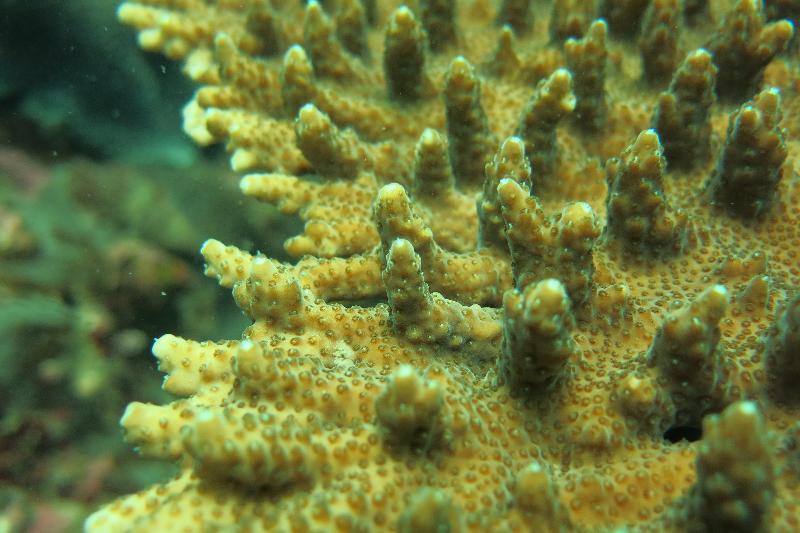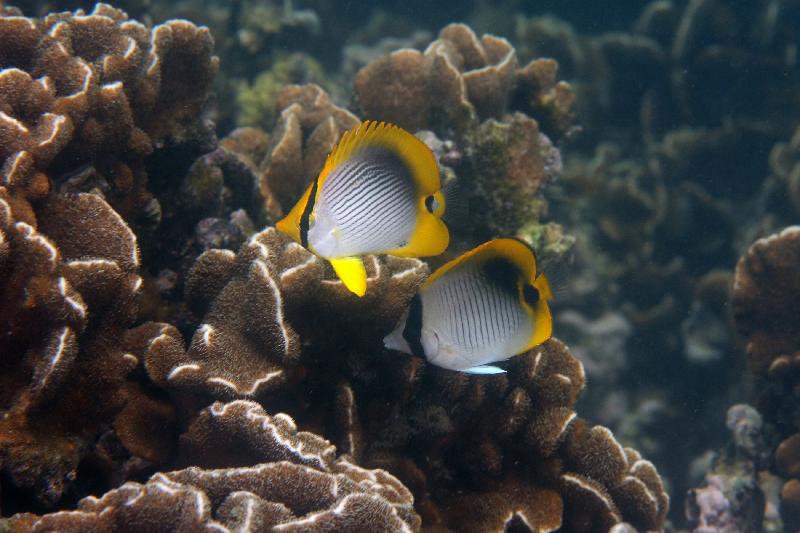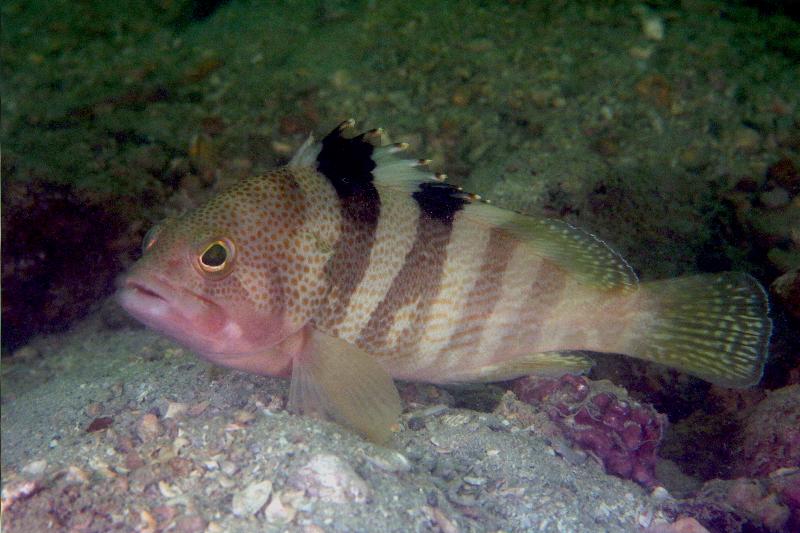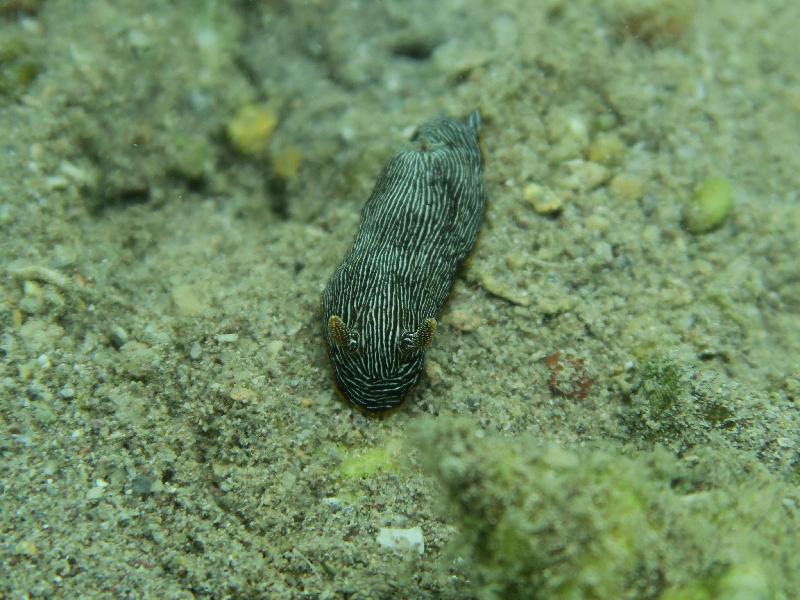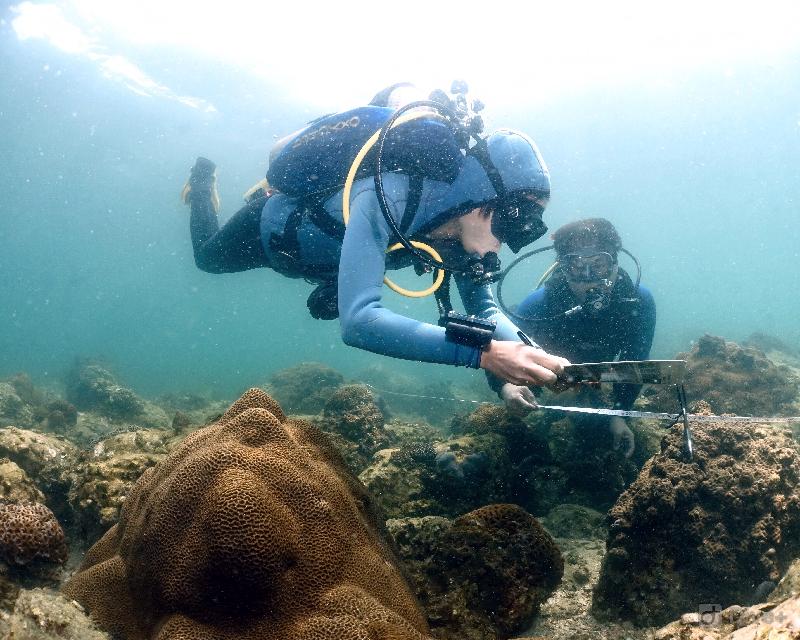Reef Check 2018 finds corals to be diverse and in healthy condition (with photos)
The Agriculture, Fisheries and Conservation Department (AFCD) announced today (December 8) that the Reef Check this year showed that local corals are generally in a healthy and stable condition and exhibit a rich diversity of fauna species.
Hong Kong Reef Check 2018, a four-month exercise that started in June, covered a wide range of areas including a number of sites of ecological importance as well as the best coral-growing sites known in the eastern part of Hong Kong waters extending from Tung Ping Chau in the north to Ninepin Groups in the south. Among the 33 survey sites, nine were within marine parks, including Hoi Ha Wan, Yan Chau Tong and Tung Ping Chau.
A variation in coral coverage, ranging from 13.0 per cent to 78.1 per cent, was recorded among the survey sites. Seventeen sites recorded over 50 per cent of coral coverage, including five sites within marine parks. Among all sites, Sharp Island North recorded the highest coral coverage of 78.1 per cent.
Reef Check 2018 assessed the condition of corals at nine sites using the Coral Watch tool. By measuring the colour intensity of the coral using a specially designed Coral Health Monitoring Chart, the health condition of corals can be determined. The deeper the colour, the healthier the corals. The average health index of the sites was 4.04 (ranging from 3.33 to 4.28), which was similar to last year's figure (4.09). The average health index is well above the general average value (3), indicating that the corals are in a healthy and stable condition.
Hong Kong Reef Check's survey method and data collection follow international standards. Reef Check divers recorded coral coverage and health status as well as other indicator species (including 20 species of fish and invertebrates). A correlation was observed between coral coverage and species diversity, indicating sites with high coral coverage tend to support more fauna groups in close association with corals. All of the 20 assigned indicator species were recorded in the survey sites, most of the survey sites were found to have a high species diversity. Wrasses, groupers, butterfly fish, sea urchins, sea cucumbers and cowries are species commonly found. Most of the groupers, wrasse, snappers and sweetlips were found in survey sites at Port Shelter and in north-eastern waters, including the three marine parks.
Coral bleaching was observed at a few sites but the impact was minor and localised.
No signs of destructive fishing practices were observed at any sites. Abandoned nets were found at a few sites but their impact was minor. The AFCD will arrange contractor to clear the nets.
A total of 79 dive teams comprising more than 800 volunteer divers from different sectors of the community took part in the Reef Check this year. The AFCD presented souvenirs and certificates to the reef check teams and participating scientists to recognise their contributions.
Hong Kong Reef Check is part of a global programme to promote the sustainable management of coral reefs. Hong Kong Reef Check aims to raise public awareness of the ecological importance of corals and the need for coral conservation, and to provide updated information on local corals for conservation and management. The Hong Kong Reef Check Foundation held the first Reef Check in 1997. The AFCD has collaborated with the Foundation in conducting the survey since 2000.
For the sake of coral conservation in Hong Kong, the AFCD continues to put in place a series of measures and programmes. Key measures include the designation of marine parks and marine reserves for the conservation of marine environment and protection of corals; the organisation of a range of educational and publicity activities to enhance public understanding of the importance of protecting the marine environment and coral communities; the Reef Check and studies to monitor the status of coral communities of Hong Kong and provide information for effective and adaptive management; the installation of mooring and coral marker buoys to reduce coral damage caused by boating and recreational activities; the maintenance of a database to record the diversity and unique features of our local corals; and a consultancy study of coal bleaching and bioerosion in Hong Kong to collect updated and scientific data for detailed assessments and to recommend appropriate management measures and long-term monitoring.
